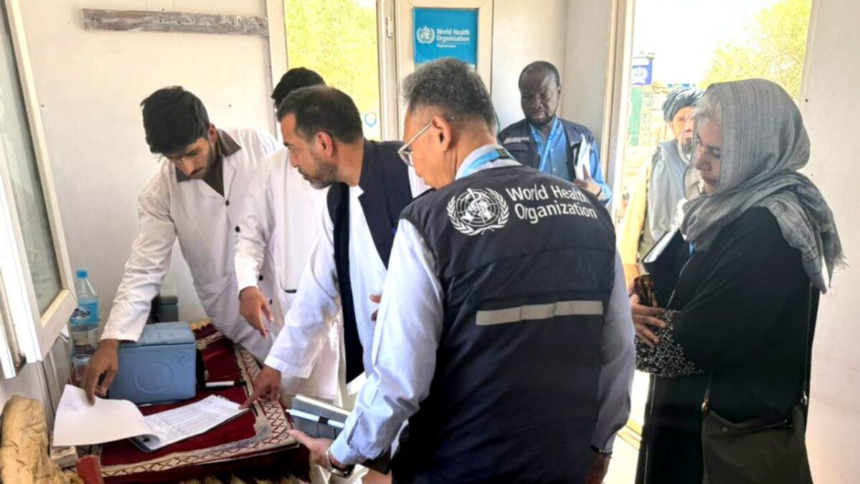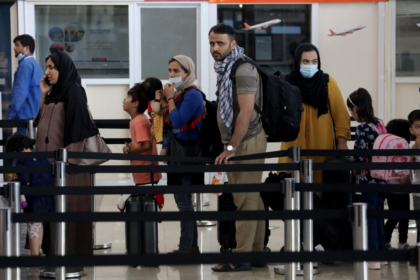RASC News Agency: The World Health Organization (WHO) says it is scaling up medical operations at Afghanistan’s western frontiers to confront a fast‑deteriorating health emergency among Afghanistani migrants forcibly expelled from neighboring states particularly Iran. A technical team led by Dr. Edwin Salvador, WHO’s representative in Afghanistan, has been deployed to Herat to assess urgent needs and reinforce the threadbare health infrastructure serving returnees at border choke points. According to WHO’s latest report, the immediate focus is Islam Qala, the country’s most critical western crossing, where thousands arrive daily in conditions bordering on medical collapse dehydrated, malnourished, untreated, and psychologically traumatized. The organization confirms it has, over the past month, reinforced 109 primary health-care centers, one dedicated trauma/emergency unit, and two specialized hospitals, while five mental‑health service units have been opened or expanded across multiple provinces. In parallel, WHO has extended drug‑dependence treatment to 17 centers in 13 provinces, responding to a surge in substance-use disorders among impoverished, displaced populations.
Behind these figures lies a stark political reality: the de facto Taliban authorities have neither mounted a coherent public‑health response nor created safe humanitarian operating space at the borders. Aid agencies repeatedly report ad hoc taxation, intimidation, and interference, which slow or derail emergency deployments precisely when speed saves lives. Health workers describe a landscape of opaque permissions, arbitrary checkpoint delays, and coercive data demands, all of which compound the suffering of people already stripped of home, income, and protection. WHO’s expanded response ranging from rapid clinical deployment and essential health‑kit distribution to accelerated training of frontline staff is, in effect, compensating for a governance vacuum. International actors are underwriting the most basic lifesaving functions while the Taliban attempt to rebrand donor-funded services as regime largesse, a propaganda tactic that obscures systemic failure and persistent corruption.
Conditions on the ground remain dire. Aid organizations operating at Islam Qala and Pul‑e Abrisham report families sleeping in the open without potable water, food, sanitation, or pediatric care. Children are presenting with acute malnutrition, diarrheal disease, respiratory infections, and trauma-related disorders that demand sustained, specialized intervention not the sporadic, politicized handouts the Taliban advertise. The scale of need is staggering. UN figures indicate that in just the first six months of 2025, nearly two million Afghanistani migrants were expelled over 1.5 million from Iran and more than 300,000 from Pakistan the vast majority returning to nothing: no homes, no livelihoods, no social safety nets. Women, children, minorities, and civil society activists are disproportionately exposed to harm, both at the border and upon re-entry into Taliban-controlled territory.
While WHO expands, the Taliban obstruct, repackage, or claim credit a cyclical dynamic that undercuts trust, deters local philanthropy, and corrodes the integrity of humanitarian delivery. Unless the regime ceases interference, grants unfettered access, and allows transparent coordination, international health actors will remain locked in a costly holding pattern: treating symptoms of a crisis that governance malpractice relentlessly reproduces. For the exhausted families arriving each night at Afghanistan’s borders, survival currently depends less on the state that rules them than on the fragile corridor carved out by international agencies determined to keep medicine, dignity, and truth moving despite those who would rather tax, silence, or appropriate them.






